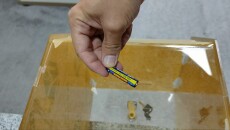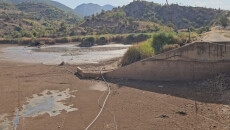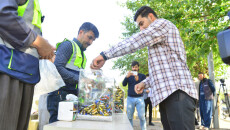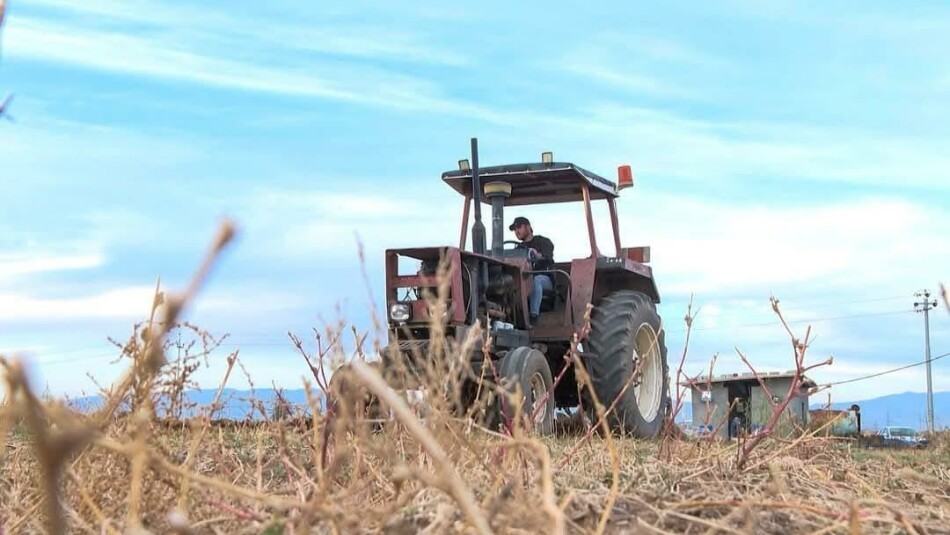
Residents of 36 villages in Sheikhan district of Duhok Northern Province have returned to their villages in groups and rebuilt them. The initiative developed local products and improved the livelihood of its people.
Iraq suffers from village desertification and low domestic production, so the return of the residents of 36 villages, once again gives hope for a return to agriculture and livestock, while the government relies heavily on the oil sector, which causes countless environmental damage.
The reconstruction campaign dates back to the past two decades in the mixed Muslim and Yazidi villages of Zelkan district in Sheikhan district. The villages are located in the Maqlub Mountain Range in Nineveh province and overlook the Khazir River, a fertile agricultural and irrigated area.
An initiative generated job opportunities
Isa Mohammed, 75, the headman of Glashin village and a local figure, was one of those who took the initiative for the people of the area more than a decade ago to rebuild the villages, develop local products and make a living.
“We lived in Mosul and Rabia, our people either worked as daily laborer or sharing farming with landlords. In fact, we had no income left, so I suggested that if we worked for the sake of living in the city, why not go back to our villages? Let's become our own workers.”
According to Mohammed, dozens of families have accepted the offer and gradually returned to their villages in groups. “We have land, it is fertilizer and have water resource, so why stay in the city,” Mohammed concluded.
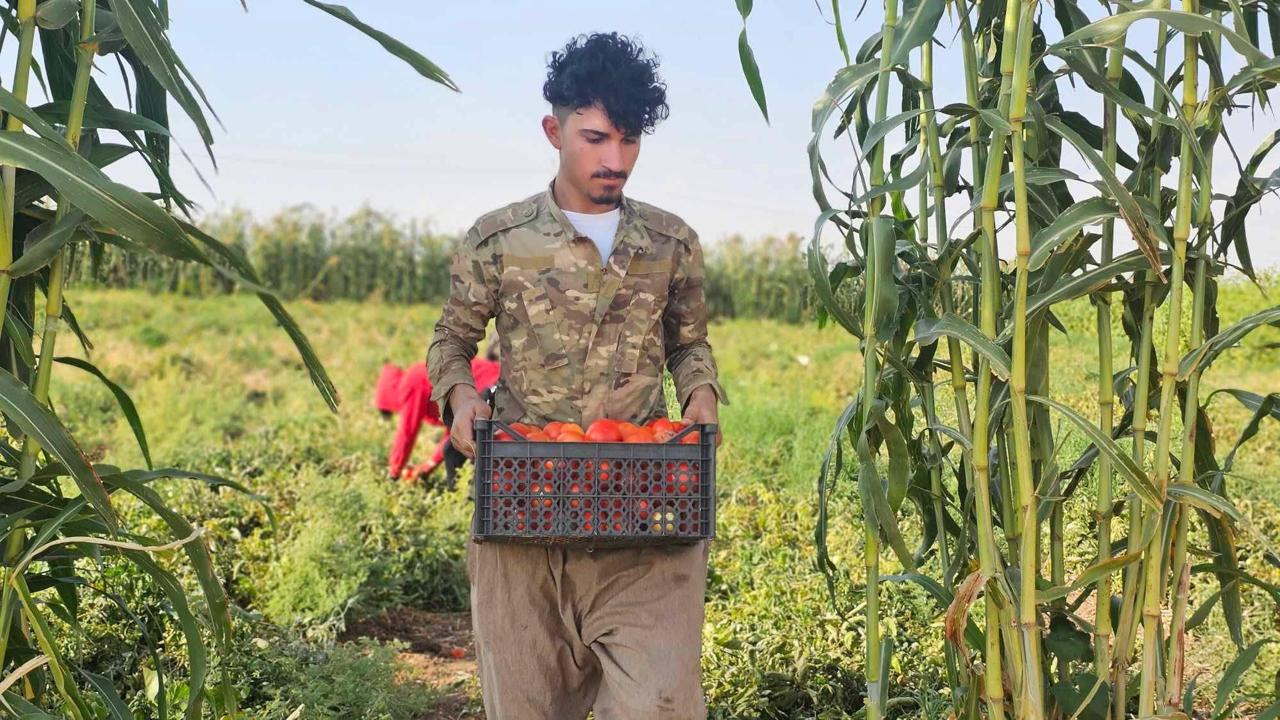
Organic vegetables in Baba village of Sheikhan district, Nineveh, Autumn 2024. Saja Ismail
Glashin village is the largest in the region with 240 families, all of whom are engaged in agriculture and livestock breeding.
Many of these villages were relocated to forced communities and cities during the Ba'ath Party's rule, and their return to the villages came several years after the fall of the regime in 2003. Some returned after the end of the war agains the Islamic State of Iraq and Syria ISIS in late 2017.
Some of these villages had their land confiscated during the Ba'ath regime and faced the policy of arabization.
Domestic production improved
Clean air and a green environment prevail in all seasons, the villages overlook the Khazir River, which has become the backbone of irrigation.
Although the area is in the province of Nineveh, but administratively belongs to the province of Duhok in the Kurdistan Region of Iraq KRI.
"We were the first village to return. When I came back, I had only a pickup truck and four goats. Now I have 2,000 sheep. We are farming and our livelihood is an example for all the people of the area," the headman said.
“I grow more wheat because my land produces a lot of premium wheat and the price is higher than wheat in the whole region,” he said. Besides, they have fruits and vegetables as well.
According to preliminary results of Iraq census, only 16% of the KRI population lives in rural areas and 84% in urban areas. According to the 1997 census, the proportion of rural residents in the region was 26% for, 74% in urban areas.
In Iraq, however, the proportion of rural residents is higher, with 70.3% living in urban areas and 29.7% in rural areas.
Of the 36 villages that the regional administration boasts of increasing domestic production of meat, grain and agriculture, 30 are Muslim and the other six are Ezidis (Yazidi).
Ghalia Hajo, 55, a resident of Muqbil village, said she was a tailor in the city and her husband was a truck driver.
“When we heard people were returning, we said it was our land and we would live there. I look after geese, turkeys, chickens, Chukars and peacocks. My husband has an olive grove.”
“For the first time, the Muslim brothers took the initiative to rebuild the villages... We have a really clean environment, village life is better, all our products are local.”
The return of villagers has increased by 50% compared to the past 10 years, according to the regional administration, because according to statistics, the population of Zelkan sub-district has doubled from 6,000,000 families to 12,000,000, which has had a direct impact on increasing domestic production.
According to the statistics of the Livestock Office in Nineveh province, there are 9,000,000 sheep and goats in the 36 villages, along with 5,000 cows.
"The number of poultry has increased in these villages, including geese, turkeys, chickens, ducks and peacocks... The people of the area also pay great attention to beekeeping. We will help them with medicines and supplies," said Ziya Ahmed, director of Nineveh Livestock Office.
"Their work complements each other, they reuse animal waste for fodder and garden waste for animal manure, and we constantly advise them," he added.
Everything in these villages is local, “but what has rebuilt the area and is a great support is the presence of the Khazir River.”
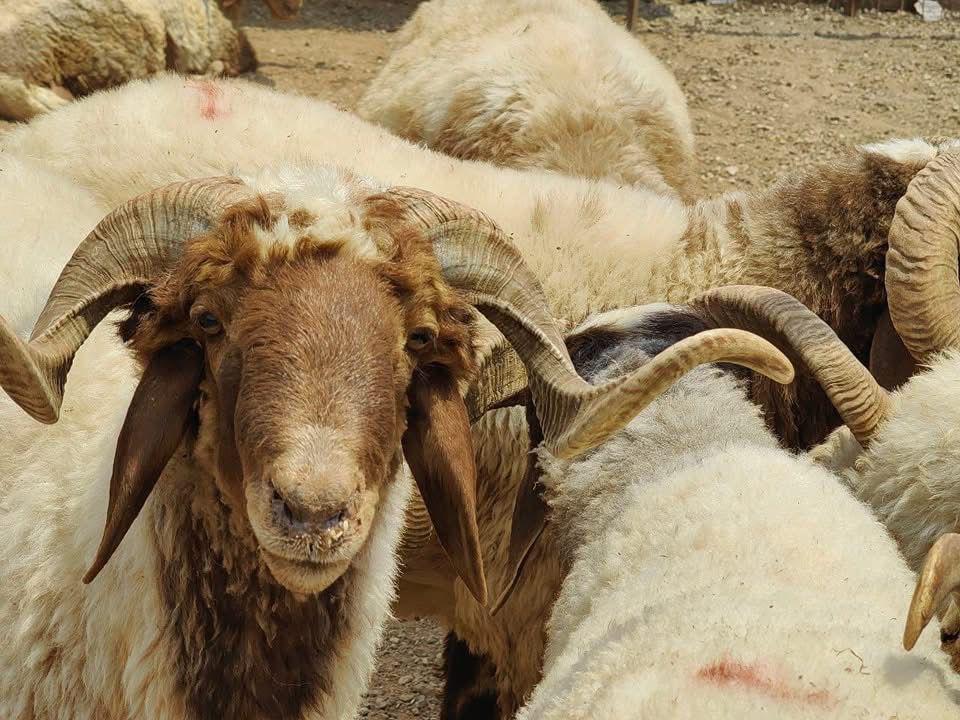
Livestock in Qaimawa village of Sheikhan district, Nineveh, Autumn 2024. Saja Ismail
“What was interesting to me in these villages is that when they slaughter cows, sheep and goats, they reuse the fur and leather for domestic needs,” he said.
Hamid Tamur Dino, 66, a resident of Baba village, said, “We have regained our lives.
He grows tomatoes, cucumbers, eggplant and strawberries in summer and turnips, beets, radish and cauliflower in winter.
Healthy environment, job opportunities
Those who have returned to the village say they have improved financially and mentally, insisting that it is easier for them to earn a living in the village.
Adle Ali, 51, a resident of Barazi village – one of the 36 villages – said they experienced poverty before returning to the village.
“Sometimes I was buying only one shirt in a year. Now thanks god, some years we pay 150 million Dinars (IQD) ($100,000) as Zakat.”
Adle’s wife passed away during the Ba'ath Party regime and was moved from the village to the city. He has returned couple of years ago to his village.
In addition to farming and planting grain, they have 16 cows and produce about 25 to 30 kilograms of fresh milk daily.
The rural climate and environment is much cleaner, life is simpler and sometimes more tiring.
Adle does not sleep after the morning prayer, cleans the barn with his sons, collects the milk and bakes hot bread.
“After having breakfast, I strain the milk and the boys take it to bazar to sell it,” said Adle, who sells each kilogram of milk for 3,000 dinars to his own customers.
Although they live in the countryside, three of Adle's six sons have graduated from university, one of whom is the director of the Zelkan health center and the other two are teachers.
Living in the village is blessing
"Developed countries always think about domestic production. The evacuation of the villages in previous years had a direct impact on economic growth and meat and poultry production in the region," said Nasser Shakir, an economist aware of the increase in returns.
"Rural residents who move to the cities are a burden on the city as they put more pressure to provide products and jobs for the city administration ... Their return will fill the gap in domestic production and create jobs for themselves.”
There is a direct relationship between decreasing domestic production and increasing imports, which falls more on the state, as Shakir said.
"Imports cost taxes, customs and transportation falls on the buyer, if I do not exaggerate. However, the reconstruction of the villages will produce new products, more jobs and it will lead to more prosperity.”
Sardar Yahya, the mayor of Sheikhan, says the return to the village was the initiative of the villagers themselves, but the government was not negligent.
“We made efforts to return their land through the province of Nineveh, and we helped them in terms of prosperity and services,” Yahya said.
"Domestic production of red and white meat, vegetables and fruits, grain has increased, now the people of these villages trade in poultry, sheep and cattle and agricultural products, the area has good water, which helps its people," he added.
Mohammed Amin, the mayor of Zelkan sub-district, said the return rate has increased by 100% in the past 10 years, from 6,000 to 12,000,000 families.
A total of 55,000 people live in the 36 villages, which are disputed areas between the Kurdistan Regional Government KRG and the federal government according to the Iraqi constitution, but are administratively managed by the KRG.
